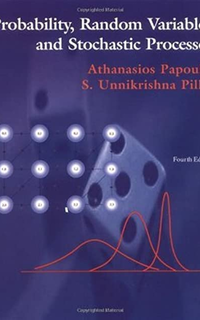Post
When readers and students ask to me for a useable book for nonmathematicians to get into probability (or a probabilistic approach to statistics), before embarking into deeper problems, I suggest this book by the Late A. Papoulis. I even recommend it to mathematicians as their training often tends to make them spend too much time on limit theorems and very little on the actual "plumbing".
The treatment has no measure theory, cuts to the chase, and can be used as a desk reference. If you want measure theory, go spend some time reading Billingsley. A deep understanding of measure theory is not necessary for scientific and engineering applications; it is not necessary for those who do not want to work on theorems and technical proofs.
I've notice a few complaints in the comments section by people who felt frustrated by the treatment: do not pay attention to them. Ignore them. It the subject itself that is difficult, not this book. The book, in fact, is admirable and comprehensive given the current state of the art.
I am using this book as a benchmark while writing my own, but more advanced, textbook (on errors in use of statistical models). Anything derived and presented in Papoulis, I can skip. And when students ask me what they need as pre-requisite to attend my class or read my book, my answer is: Papoulis if you are a scientist, Varadhan if you are more abstract.
